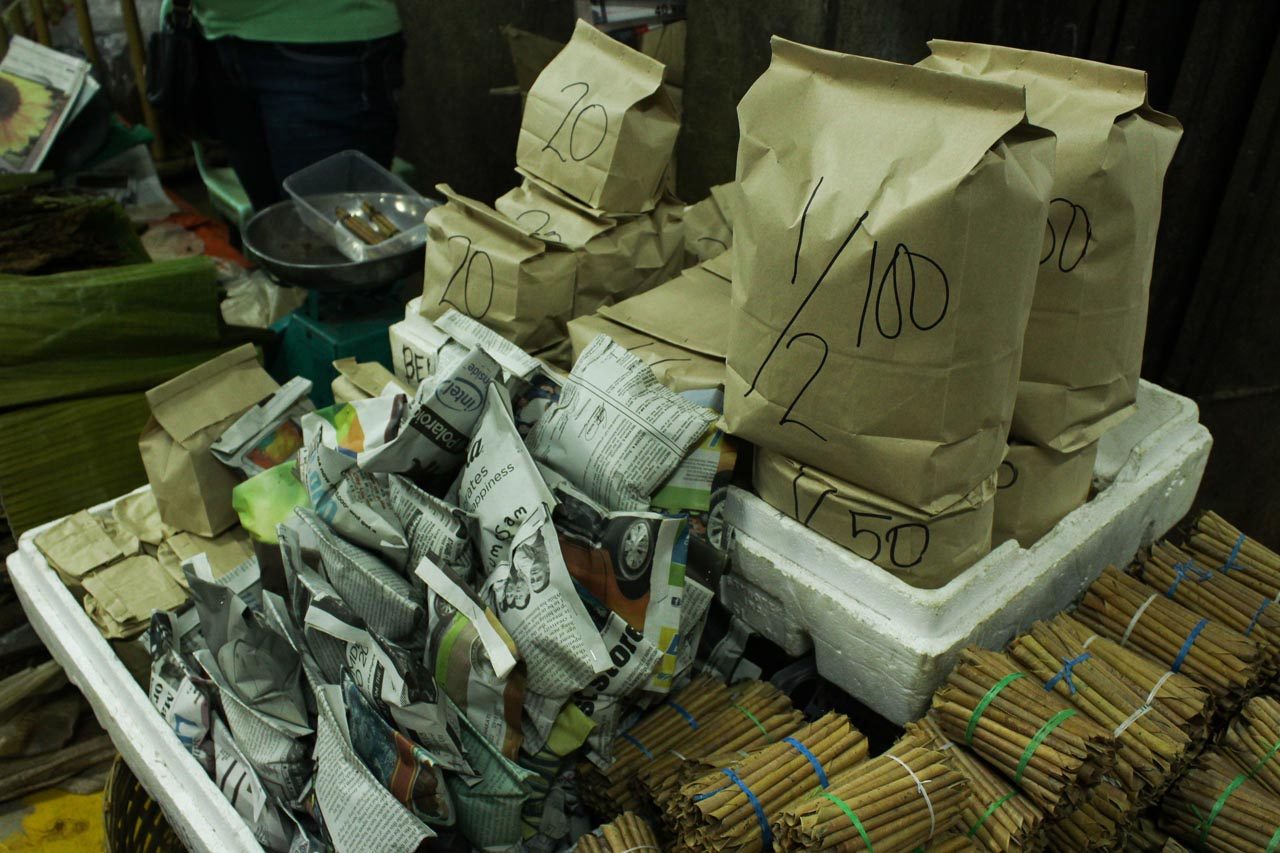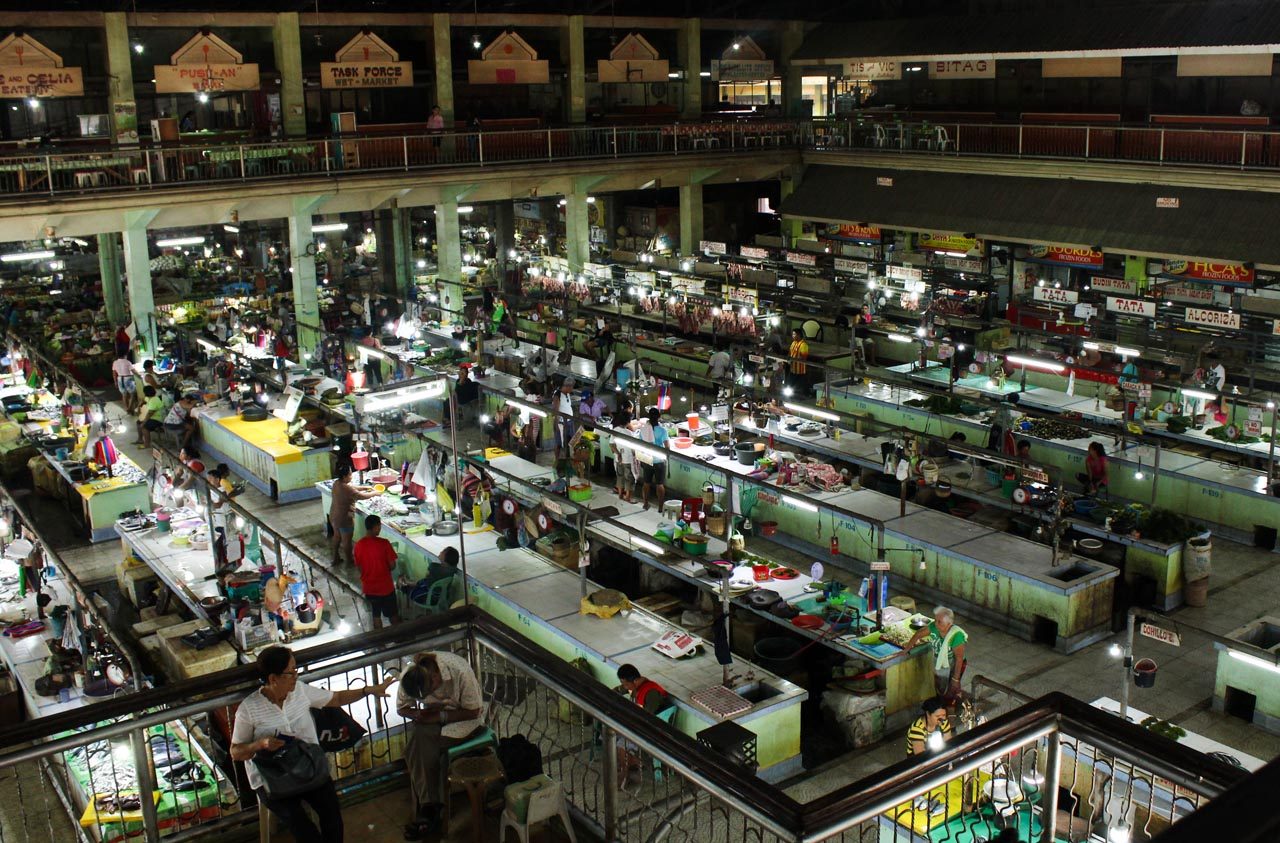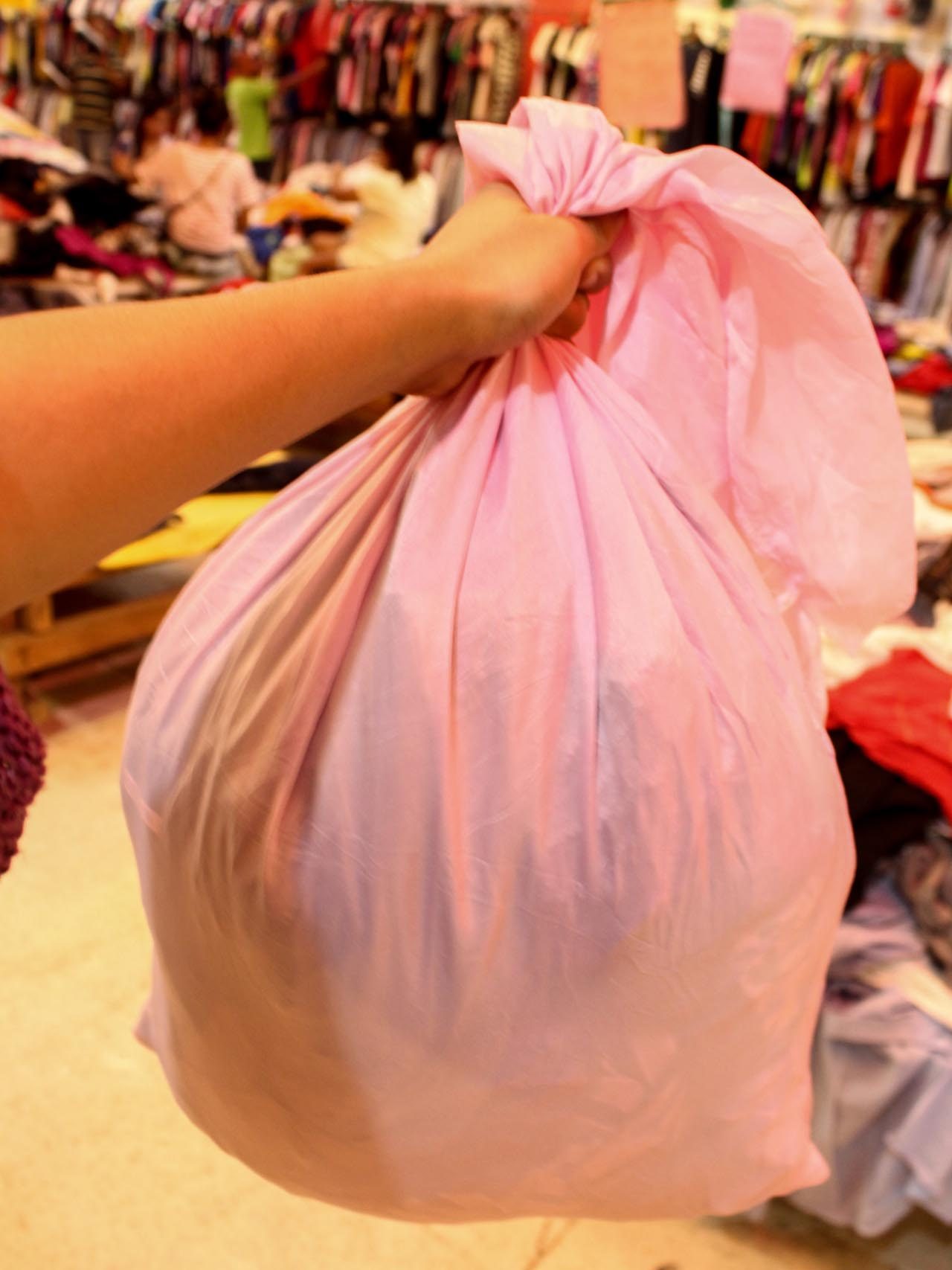SUMMARY
This is AI generated summarization, which may have errors. For context, always refer to the full article.

NEGROS OCCIDENTAL, Philippines – Welcome to San Carlos City where plastic bags are no longer welcome.
In the city’s public market, bundles of colorful sando bags have been replaced by bunched leaves, old newspaper, and reusable net bags. Even in the wet section of the market, where plastic bags are integral to everyone’s routine, people managed to innovate a way to operate without plastic bags.
This is in line with City Ordinance No. 14-53 regulating the use of plastic cellophane, sando bags, and Styrofoam. (READ: How the fight vs plastic pollution can begin in the classroom)
“The city government prioritized the implementation in the public market, especially in the wet section, because it is where plastic bags are most used and is, therefore, the hardest part to implement the ordinance,” explained Arthur Batomalaque, Waste Management Office division head.
However, It is not a total ban on plastics. There are specific exemptions for items that are can only be wrapped in plastic cellophane like ice, ice candy, sliced fruits, and products manufactured outside the city.
A study by Ocean Conservancy in 2015 showed that the Philippines generates 2.7 million metric tons of plastic garbage every year. Of this volume, 521,000 tons find their way to the oceans, making the country the 3rd top source of plastic leaking into oceans globally. (READ: Why PH is world’s 3rd biggest dumper of plastics in the ocean)

Adjustment period
Early into the implementation, the ordinance was met with complaints and disagreement from both vendors and customers.
“At first, marami pang reklamo – usually ganyan naman talaga ‘pag may change, d iba?” said Leila Mansueto, OIC to the Public Market. “Maraming reklamo just to continue doing the old way, using plastic.”
(At first, there were many complaints – that’s how it usually is when there’s change, right? They come up with many complaints and excuses just to continue doing the old way, using plastic.)
Customers who felt inconvenienced by the new rule transferred to the malls, causing a drop in the sales of market vendors.
Evelyn Apurado, a market shopper, had a hard time shopping with paper bags, especially in the meat section.
“We got angry because it was hard [to use] only paper bags. Mostly in the meat section and fish division, it’s so hard for us,” expressed Apurado. But later on, she saw its advantages. “It was very difficult but now we are practicing to have our own bags [and containers]. I think it helps our place.”
Things were similarly hard, if not even harder, for the market vendors, whose livelihood was at stake.
Allen Auditor, a tobacco vendor, abides by the ordinance but with a heavy heart. Packing her items with paper bags or old newspaper is more expensive compared to using plastic bags, so she had to raise prices which affected her customers. Using paper wrappers also took more time and effort, she explained.
“Pinipilit lang namin kasi ordinansya ‘yan eh. Tapos wala ka naman ding magagawa (We are just complying because of an ordinance. We can’t do anything about it anyway),“ said Auditor.
Vendors complained that plastic bags are cheaper than paper bags and dried leaves and that old newspaper are not good for wet items.
Bobby Pangadlaw, a meat chopper, said the ordinance initially cost them their customers who turned to malls for more convenient shopping. But after some time, Pangadlaw was able to adjust, and so did his customers who now bring their own bags or containers when they shop.
More importantly, Pangadlaw has seen the reason why this ordinance must be implemented and he agreed with it. In fact, he noticed that ever since the market implemented the ordinance, the place has been cleaner and the canals are no longer clogged with plastics.
To help the vendors adjust to a plastic-free lifestyle, the city government conducted monthly contests in the marketplace to reward the most environment-friendly vendor. It also gave out loans so that vendors can adjust their finances. (READ: In fight vs plastic, ‘challenge is changing people’s mindset, lifestyle’)
“Positive approach lang muna ginawa namin, hindi ‘yung apprehension. So doon na lumabas kung ano pala ‘yung pwedeng alternative aside from the plastic bags. Sa kanila na lang ‘yung mga ideas (We took a positive approach first instead of apprehensions. So that’s when they innovated ideas on alternatives for plastic bags. The ideas came from them [vendors],” said Batomalaque.
“May iba pa rin na medyo matigas ang ulo, kaya nga marami kaming apprehensions during the start. Until now meron pa rin, pero hindi na ganun katindi (There are still some who are stubborn, that’s why we have a lot of apprehensions during the start. Until now there are still some, but not as many as before),’ he said.

How did they do it?
The local government carried out other efforts prior to the ordinance to make sure that the shift was not too abrupt.
“It took a great deal of political will and a lot of engagement efforts to successfully implement the regulation. There was a lot of resistance but if you really are determined to apply the law, you can really do it and have your people follow,” said San Carlos City Mayor Gerardo Valmayor.
Batomalaque also noted that since plastic usage was regulated in the city, there has been a significant drop of more than 50% in their residual waste gathered during their annual coastal cleanups (READ: War on plastic leaves manufacturers grasping at straws)
San Carlos City is a national finalist, alongside Makati and Pasig, in the One Planet City Challenge by the World Wildlife Fund (WWF) for Nature as 2018 Most Lovable and Sustainable City in the world.
If they can do it, other cities surely can, too! — Rappler.com
Add a comment
How does this make you feel?
There are no comments yet. Add your comment to start the conversation.